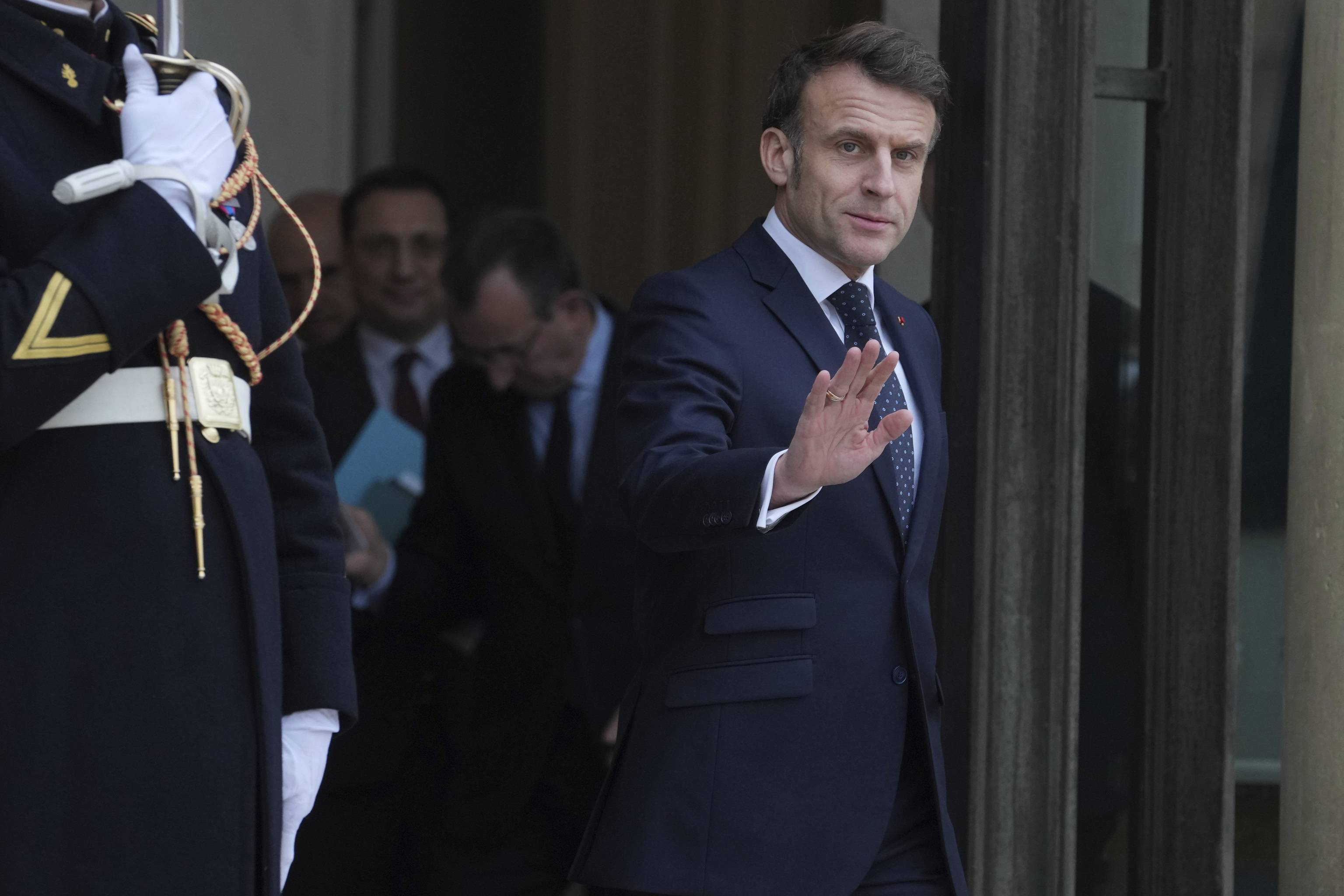Four years before the war in Ukraine and during Donald Trump's first term, Emmanuel Macron openly challenged the creation of "a true European army" to defend the continent without relying on the United States. "The time when we could rely on others is in the past," emphasized Chancellor Angela Merkel that same year, 2018, also calling for the creation of a "real" European army complementary to NATO.
The French president has once again taken the lead this week, in the renewed role of champion of European security, calling on leaders in two rounds at the "headquarters" of the Élysée Palace. In his attempt to lead the "rearmament" of Europe, Macron has, however, highlighted the existing cracks both in defense spending and in the collective response to the "peace negotiations" undertaken by Washington and Moscow.
Despite German Chancellor Olaf Scholz's rejection of a European peace mission, considering it "premature" and "inappropriate," Emmanuel Macron and Prime Minister Keir Starmer plan to create a "guarantee force" composed of 30,000 troops to protect cities, ports, and critical infrastructure in Ukraine (Sweden, the Netherlands, and a dozen other countries showed relative support for the proposal).
The soldiers and specialists would mainly be from the navy and air forces, with minimal presence of troops on the ground, in any case far from combat zones and for a limited time. Prime Minister Keir Starmer plans to explain the plan to President Donald Trump during his upcoming visit to Washington. Moscow has already stated that it will not allow the deployment of NATO soldiers in Ukraine.
The verbal sparring between Trump and Zelenski actually overshadowed the second mini-summit on European security in three days sponsored by Macron, criticized for excluding two-thirds of EU leaders from the "informal meeting" on Monday.
Estonia, Latvia, Lithuania, Romania, the Czech Republic, Finland, Norway, Sweden, Belgium, and Greece were invited this time by the French president, who extended the invitation to Canada, as a NATO member. However, it was a rather virtual meeting via video conference, lacking the glamour of the previous Monday's meeting (and without the opportunity for incidents like the one involving Georgia Meloni, who arrived almost an hour late in a Maserati).
Macron himself has been very brief in his comments on the achievements of the two mini-summits. "We are seeking a strong and lasting peace," he told the French press. "And to achieve this, Russia must stop its aggression, while providing credible security guarantees to Ukraine."
The proposal to send European soldiers on a hypothetical peace mission to Ukraine, put forward by Prime Minister Keir Starmer, has been overshadowed by the outright rejection from Chancellor Olaf Scholz, who deemed it "inappropriate" and "premature." Macron was forced to clarify the proposal by stating that it would involve sending experts "for a limited time and outside the conflict zone."
Thus, the only real progress on the "European front" has occurred outside the emergency summits in Paris and has been driven in Brussels by European Commission President Ursula von der Leyen, who advocates for relaxing EU fiscal rules to "substantially increase defense spending" by the 27 member states and activating the so-called "escape clause" provided for in the multiannual budget instrument.
The old idea of a "European army," put forward by Macron during his visit to Verdun on the centenary of the Armistice of World War I (and revived by Volodymyr Zelensky in his recent speech at the Munich conference), has not been mentioned amid the frenzy of this week.
After the apparently unsuccessful attempt to show a common European front, the game is now in the hands of Keir Starmer, who has been talking for months about a "European security pact." The possibility of a new "entente" between London and Paris, with their respective nuclear arsenals, still looms distant on the horizon.
